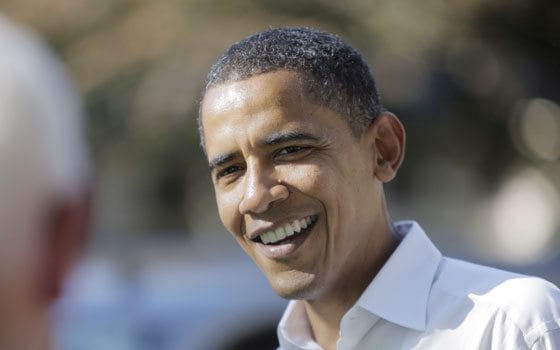
“There’s a delicious irony that there are private luxury jets landing in Washington with people who have tin cups in their hand,” groused U.S. Rep. Gary Ackerman, a New York Democrat.
Later, to show their contrition, the executives drove to Washington in hybrid cars, bringing with them a wish list for as much as $34 billion.
The Senate, at least, was unmoved. And the automakers’ fate rested with the lame duck Bush administration, which said it was amenable to helping out to keep the companies going — at least until January, when the companies’ survival would be just another of Obama’s problems.
Those problems piled up after Election Day. America cut 533,000 jobs in November alone — the biggest loss in 34 years — shooting the unemployment rate to 6.7 percent. And, oh, by the way, Americans were told, we’ve actually been in a recession since December 2007.
Where’s the bottom? people asked. We’re not there yet, replied Obama. It’s going to get worse before it gets better, he added.
He knows about weathering the highs and lows of long journeys. His bid for the White House lasted for more than a year, and for a good chunk of that time, it seemed more likely that the country would elect its first female president than its first African American male.
Hillary Rodham Clinton led in early polls and declared Obama couldn’t win, then watched as he did just that.
Republican Sen. John McCain made “Joe the Plumber” America’s generic handyman, and chose as his running mate an unheard-of governor from Alaska who bore an uncanny resemblance to “Saturday Night Live” alum Tina Fey.
Sarah Palin infused the pop-language lexicon with a few words of her own — “Drill, baby, drill” and “lipstick,” applied to pit bulls and hockey moms.
But while the Alaska governor was an immediate superstar to some conservatives, she also became known for the $150,000 in finery secured for her by the Republican Party, and for her assertion that her foreign relations experience was bolstered by the fact Russia could be seen from her state.
After the election, Obama changed his working relationship with former foes. Clinton became his choice for secretary of state. He picked another opponent, New Mexico Gov. Bill Richardson, as secretary of commerce.
His policy choices as president will likely be exponentially harder.
There’s the economy, of course. Obama has proposed the biggest public works construction program since the interstate highway system was introduced 50 years ago.
And then there is the very dangerous world Obama inherits.
In Iraq and Afghanistan, war raged on through 2008 — increasingly in Afghanistan, which saw an ugly increase in al-Qaida attacks, and less violently in Iraq, where “surge” was the word.
In Zimbabwe, where dictator Robert Mugabe continues to wage war on his own people, the word “inflation” lost all meaning as it reached 231 million percent and a cholera epidemic threatened villages and cities alike.
Off the coast of Somalia, an old word — “piracy” — took on new and unsettling meaning.
In Mumbai, India, a team of terrorists killed 171 people over three days.
In Iran and North Korea, hostile regimes and nuclear capabilities remained a scary combination.
It all might seem impossible, and yet, Obama did not seem at all daunted when he spoke to thousands at Chicago’s Grant Park, on the night of his victory.
“This is our time, to put our people back to work and open doors of opportunity for our kids; to restore prosperity and promote the cause of peace; to reclaim the American dream and reaffirm that fundamental truth, that, out of many, we are one; that while we breathe, we hope.
“And where we are met with cynicism and doubts and those who tell us that we can’t, we will respond with that timeless creed that sums up the spirit of a people: Yes, we can.”
And so that is one last word that echoed throughout the year — a word that hasn’t lost resonance, though it has been uttered many times. It is something people carry into 2009, and the reason they voted for change. It is something harbored in hearts around the world.
(Associated Press)






